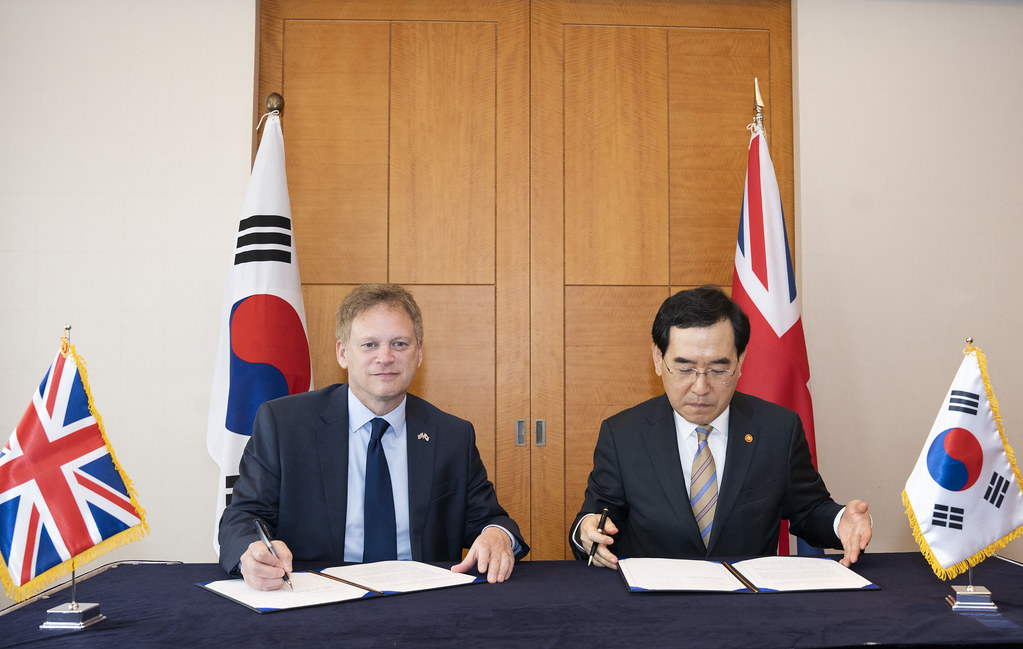UK Minister for Energy Security, Grant Shapps, was in South Korea on April 10 where he signed a cooperation agreement with its government which promotes investment opportunities in the UK renewables sector to South Korean firms.
A statement by the Department of Energy Security and Net Zero (DESNZ) said that “the visit is aimed at demonstrating the investment opportunities in the UK in the renewable energy sector, and how the UK’s world-leading expertise can help other countries to make the switch from fossil fuels”.
Shapps was on the first day of a trip that sees him travel to Japan for the G7 meeting in Sapporo. UK foreign minister James Cleverley recently held a telephone call with his Japanese counterpart, with the UK looking to explore trade opportunities opened up by its accession to the Comprehensive and Progressive Trans Pacific Partnership (CPTPP).
The UK is aiming to encourage Korea to move away from reliance on Russian gas and coal imports by investing in offshore wind and nuclear. “UK companies represent 60 per cent of Korean offshore wind engineering contracts, and Korea is already investing in projects supporting the offshore wind industry in the UK”, DESNZ said.
Shapps wants South Korea to join the 168-party “Powering Past Coal Alliance”, to move forward the date at which it aims to phase out coal from 2050 to 2030. “Russia’s gas – just like the president himself – belongs in the past,” Shapps said, as he promoted opportunities for the UK and South Korea to work together on the energy transition.
South Korea has a target of 12GW of offshore wind by 2030, with over 25 projects in development, the majority involving UK companies. The UK already has 14GW of offshore wind capacity, with a target of 50GW by 2030.
Shapps highlighted SeAH Wind’s £512 million investment in a new factory in Teeside to manufacture offshore wind turbine foundations as an example of Korean companies investing in the UK. The two nations also agreed to further cooperate on developing civil nuclear power, which has been ongoing since the Nuclear Cooperation Agreement between the countries in 1991.
The UK and South Korea are aiming to cooperate on building nuclear supply chains and developing small modular reactors. China currently has far more developed nuclear supply chain industry with interests in projects such as EDF’s Hinkley Point C.






